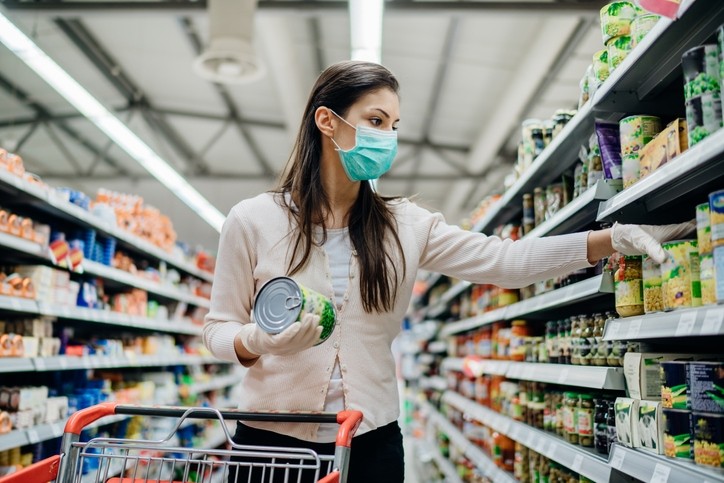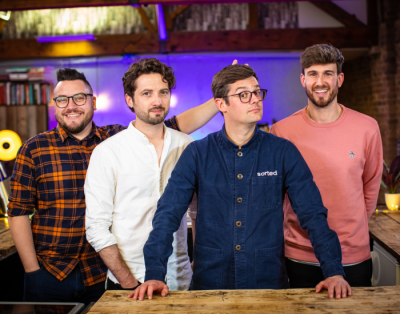‘Consumers want to buy from brands who share their values’: Euromonitor on global trends within the food industry

Shoppers are expected to take social and environmental issues more seriously, rewarding businesses that use their profits for good post-pandemic, according to Euromonitor International’s latest report identifying the top 10 global consumer trends of 2021.
Brands that ‘rebuild a greener and more equitable world’ could gain not only a competitive advantage but also ‘the necessary social licence, or trust of society, to operate’, the report says.
The market researcher expects more businesses will reposition from a pure-profit strategy to join the purpose-driven movement this year, a move it claims will improve ‘business resilience, brand reputation and financial value’.
Consumers are ‘shaken and stirred’
The pandemic brought new stress factors, including health risks, unemployment or economic hardships, isolation, upended routines and demands for new roles and skills, the report observed.
As a result, consumers are reassessing their priorities and identities, reconfiguring work-life balance and exploring new hobbies in a socially distant world.
A trend of the ‘thoughtful thrifter’ has emerged. Euromonitor observed companies are identifying growth opportunities across affordable luxury in alcoholic drinks and indulgences in packaged food. ‘Affordable premiumisation’ is another trend observed in the report, which will drive food and beverage choices to create restaurant-quality meals at home.
"Acting with purpose is about brands who put social and environmental factors at the heart of their strategies," said Alison Angus, Head of Lifestyles at Euromonitor International.
"A lot of big international brands are doing that. A lot of start-ups now are built around purpose and sustainability. They've got it right at their core. Some companies don't take it as seriously as they should be," she told FoodNavigator.
Environmental concerns have long been front-of-mind among many consumers. But the pandemic has 'totally accelerated' this trend, she told us.
"We've seen what happens if we reduce our carbon footprint. The environment got better because we weren't going anywhere. Wildlife came out to play. The pandemic has put it in our minds that whatever we do and what we choose to spend on makes a difference."
COVID-19 has also heightened peoples' sense of social purpose. "It's made us want to look after ourselves but also other people. We're all looking out for each other and we want to keep each other safe. That's heightened interest in buying local products."
Willingness to pay
Sustainable products tend to come at a premium, however. Given the concomitant economic impact of the pandemic, will consumers be willing to spend more money on brands that 'act with purpose'?
Willingness to pay is a huge dilemma, said Angus, for both consumers and brands for whom corporate sustainability and social responsibility measures come as a huge investment -- often to the detriment of short-term bottom line.
She thinks consumers have split into two camps during the pandemic: those working and earning and not going out; and those who are seriously struggling.
The former are willing and able to spend on indulgences. This includes investing in premium products and ingredients to bring that 'bar and restaurant experience into the home', and also sustainable products from those brands that 'share their values'.
"They are prepared to pay a premium, but they are careful about what they buy. They want to buy from brands whose values align with theirs."
Retail tech will shine in Covid-hit world
COVID-19 has disrupted supply chains, overwhelmed customer service and caused delivery delays, added the Euromonitor report. The pandemic has introduced new concerns towards social distancing and hygiene. Euromonitor therefore expects businesses to embrace the latest technology to help customers recapture lost in-store conveniences. “Companies are challenged to cultivate a resilient customer experience while upholding what made their business convenient in the first place,” it wrote in the report. Guaranteed product availability or subscription services can minimise or eliminate the number of shopping trips needed. New methods, such as QR codes on social distancing ground markers, allow consumers to browse menus or search products while queuing to enter or pay, it noted. “The goal is to offset COVID-related inconveniences and recapture an experience that feels normal.”



















